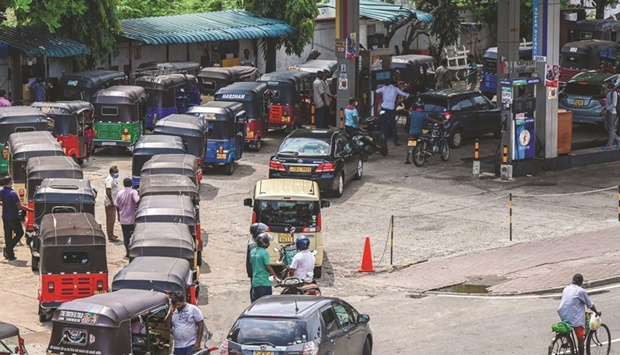Sri Lanka’s central bank has secured foreign exchange to pay for fuel and cooking gas shipments that will ease crippling shortages, its governor said yesterday, but police fired tear gas and water canon to push back student protesters.
Most of Sri Lanka’s petrol stations have run dry as the island nation battles its most devastating economic crisis since independence in 1948.
At some pumps in the commercial capital, Colombo, dozens of people stood in lines holding plastic jerry cans, as troops in combat gear and armed with assault rifles patrolled the streets. Traffic was extremely light. Residents said most people were staying at home because of the lack of transport.
Hundreds of students carrying black flags marched on Colombo’s central Fort area, chanting slogans against the government.
Police fired repeated rounds of tear gas and water canon to push them back. Central bank governor P Nandalal Weerasinghe told a news conference adequate dollars had been released to pay for fuel and cooking gas shipments, utilising in part $130mn received from the World Bank and remittances from Sri Lankans working overseas.
He was speaking after the central bank held interest rates steady at a policy meeting, citing a massive 7 percentage point increase in April that it said was working its way through the system. The country was more politically and economically stable, Weerasinghe said, adding that he would stay on in his post.
He told reporters on May 11 he would resign in two weeks in the absence of political stability as any steps the bank took to address the economic crisis would not be successful amid turmoil.
Opposition parliamentarian Ranil Wickremesinghe was named prime minister last week and he has made four cabinet appointments. However, he has yet to name a finance minister.

(File photo)
